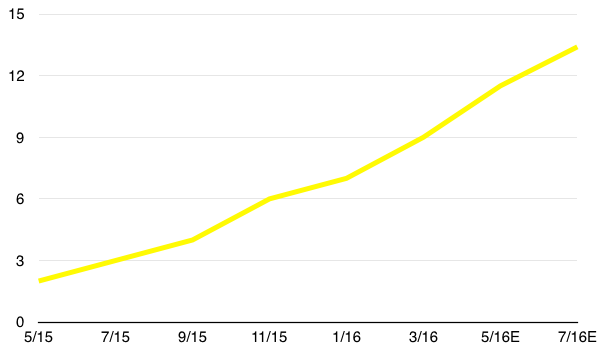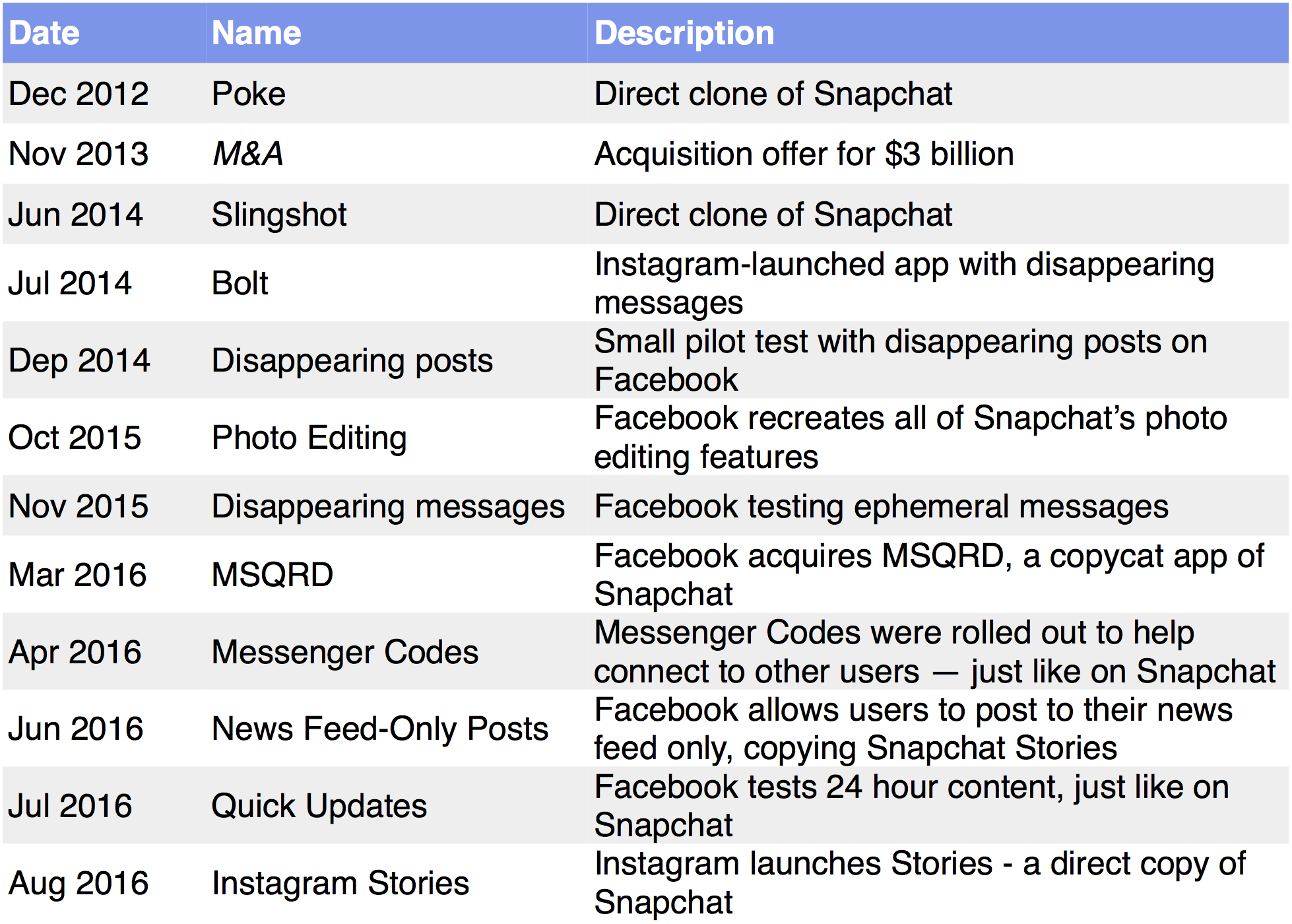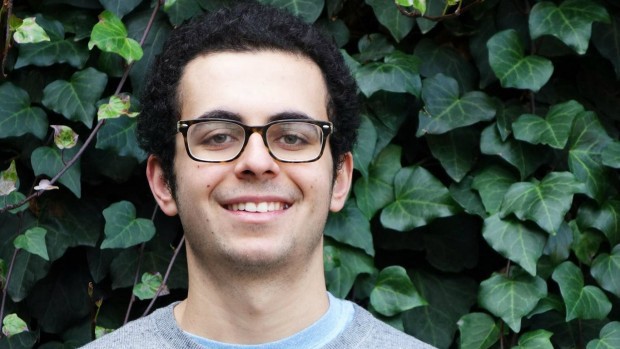Market Snapshot
| Indices | Week | YTD |
|---|
There’s no fight we cannot win. With you and I defying gravity, they’ll never bring us down!
— Glinda & Elphaba (Wicked)
So if you care to find me, look to the western sky. As someone told me lately, everyone deserves the chance to fly!
— Elphaba (Wicked)
This week, GSV is hosting the second annual Pioneer Summit (September 14-15) at GSVlabs in Silicon Valley. The Summit’s mission is to accelerate transformative ideas by bringing together visionary founders, investors, and leaders who revel in “defying gravity” and changing the world for good. (Disclosure: GSV owns shares in GSVlabs)
Our focus is on the industries of the future, which will be shaped by key themes, including Exponential Machines, Human Renaissance, Commerce Reimagined, a Sustainable World, and Moonshot Startups.

FEATURED PANELS AND TALKS AT THE PIONEER SUMMIT
35550.png)
98453.png)
2016 Global Silicon Valley Hall of Fame
Football lovers go to Canton to visit the Football Hall of Fame. Baseball greats are honored in Cooperstown. But if you are like us and are addicted to entrepreneurship and innovation, where do you go to celebrate the pioneers and mavericks of the Global Silicon Valley?
Part of our community’s core mission is to celebrate the leaders who have inspired generations of innovators and dreamers. That’s why we launched the Global Silicon Valley Hall of Fame at the inaugural Pioneer Summit in 2015, honoring Bill Campbell, Larry Sonsini, Diane Greene, Dick Kramlich, and Mike Homer (posthumously).
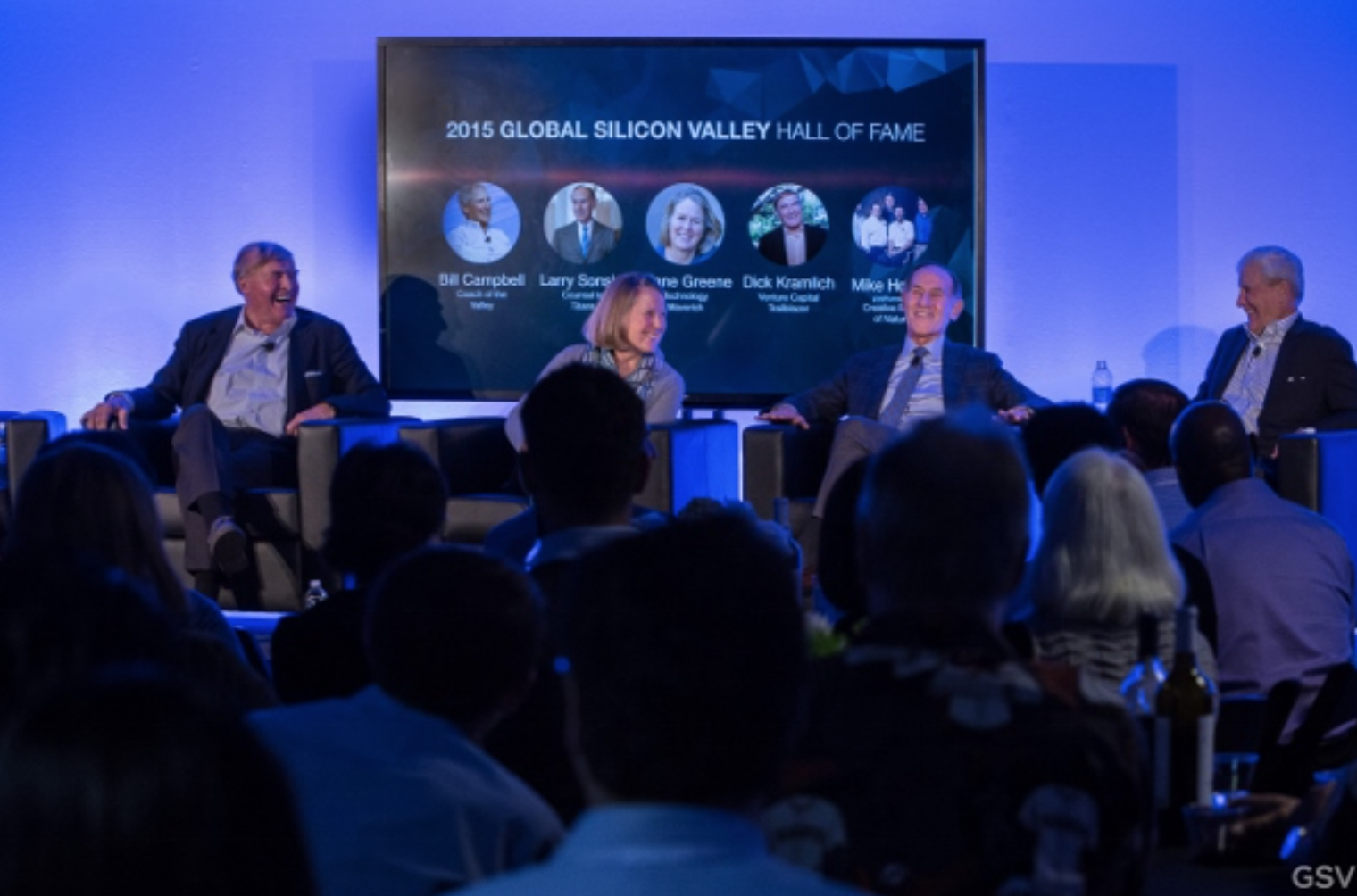
This year, we are inducting our second class of GSV Hall of Famers. This unique group includes the pioneers who have created, led and advised some of the most important technology companies in the world. The impact they have had on The Valley and the world is beyond measure. We look forward to the induction celebration at the 2016 Pioneer Summit on the evening of September 15th from 6-8pm and hope to see you there!
Carol Bartz, Fearless Builder
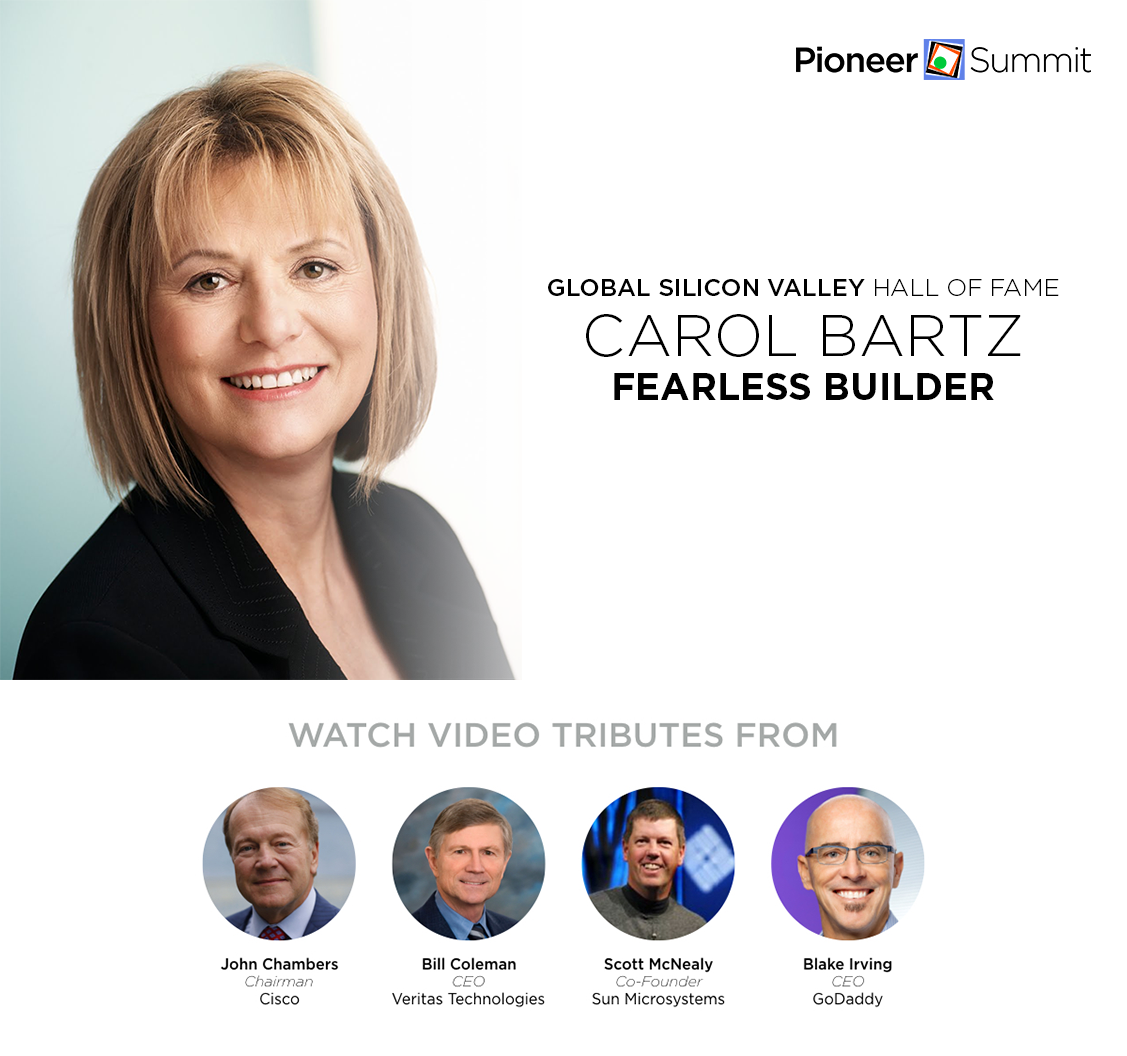
Before there was a Sheryl Sandberg or Susan Wojcicki, there was Carol Bartz. Carol served at the helm of two high-profile tech companies, Autodesk and Yahoo!, in addition to serving on the boards of numerous corporations, including Cisco. Carol turned Autodesk into the company that it is today. During her time as the CEO, annual revenue rose from $300 million to $1.5 billion.
Carol began her corporate career at 3M where she flourished amidst gender discrimination in a male-dominated workplace. After four years, Carol left 3M and rose to Silicon Valley stardom, first at Digital Equipment Corp, then at Sun Microsystems. Soon Autodesk came knocking and Carol began her 14-year tenure as CEO, transforming the company into the profitable, software leader it is today. After Autodesk, Carol was given the daunting task of taking over internet giant Yahoo! from its founder Jerry Yang in 2009. She served as CEO of Yahoo! until 2011. Carol is married to Bill Marr, a former executive at Data General and Sun Microsystems. They have three children: Bill, Meredith, and Layne.
Ken Coleman, Pioneering Mentor
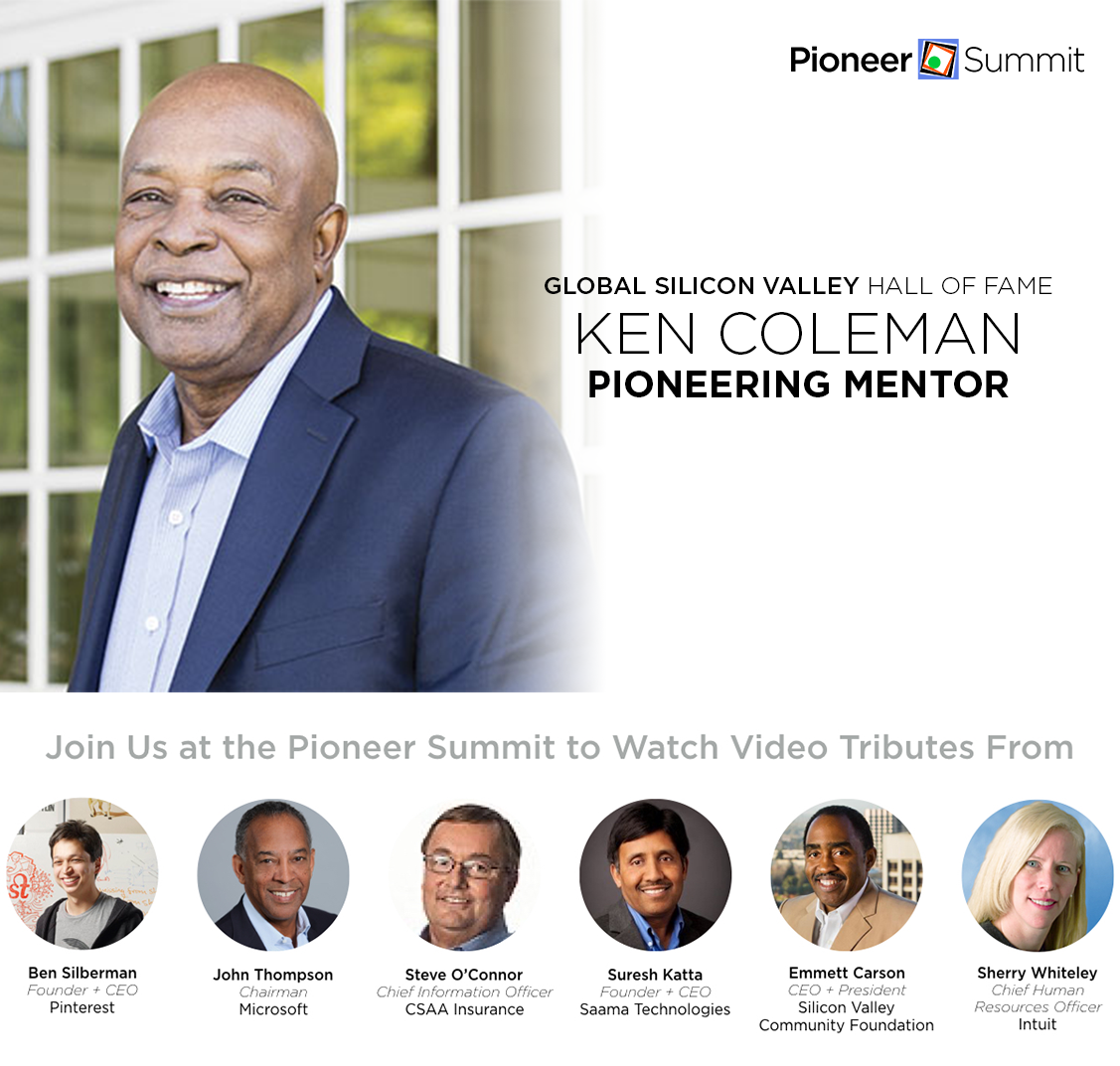
Ken Coleman has long been a trailblazer in the Valley. Despite working in an industry notorious for being dominated by white male executives, Ken has held some of the most senior positions in Silicon Valley. He was notably the Executive Vice President of Sales, Service and Marketing of Silicon Graphics (where he hired Ben Horowitz as an intern), and is perhaps the most influential major African American leader in Silicon Valley.
Ken is Chairman of Saama Technologies, Inc., one of the largest pure-play analytics solutions and services companies in the Data Analytics market. He is currently a special advisor at Andreessen Horowitz, mentoring founders into CEOs and advising talented individuals on opportunities in Silicon Valley. He is also an advisor at Pinterest. In addition, he is a board member of CSAA Insurance, Entertainment Partners, and Procura.
Ken is noted by many in the Silicon Valley community not only as an important mentor to many leading CEOs and executives, but also a philanthropist, giving his time, knowledge and resources to people who have the most significant needs in the community.
Gordy Davidson, Confidant of Champions
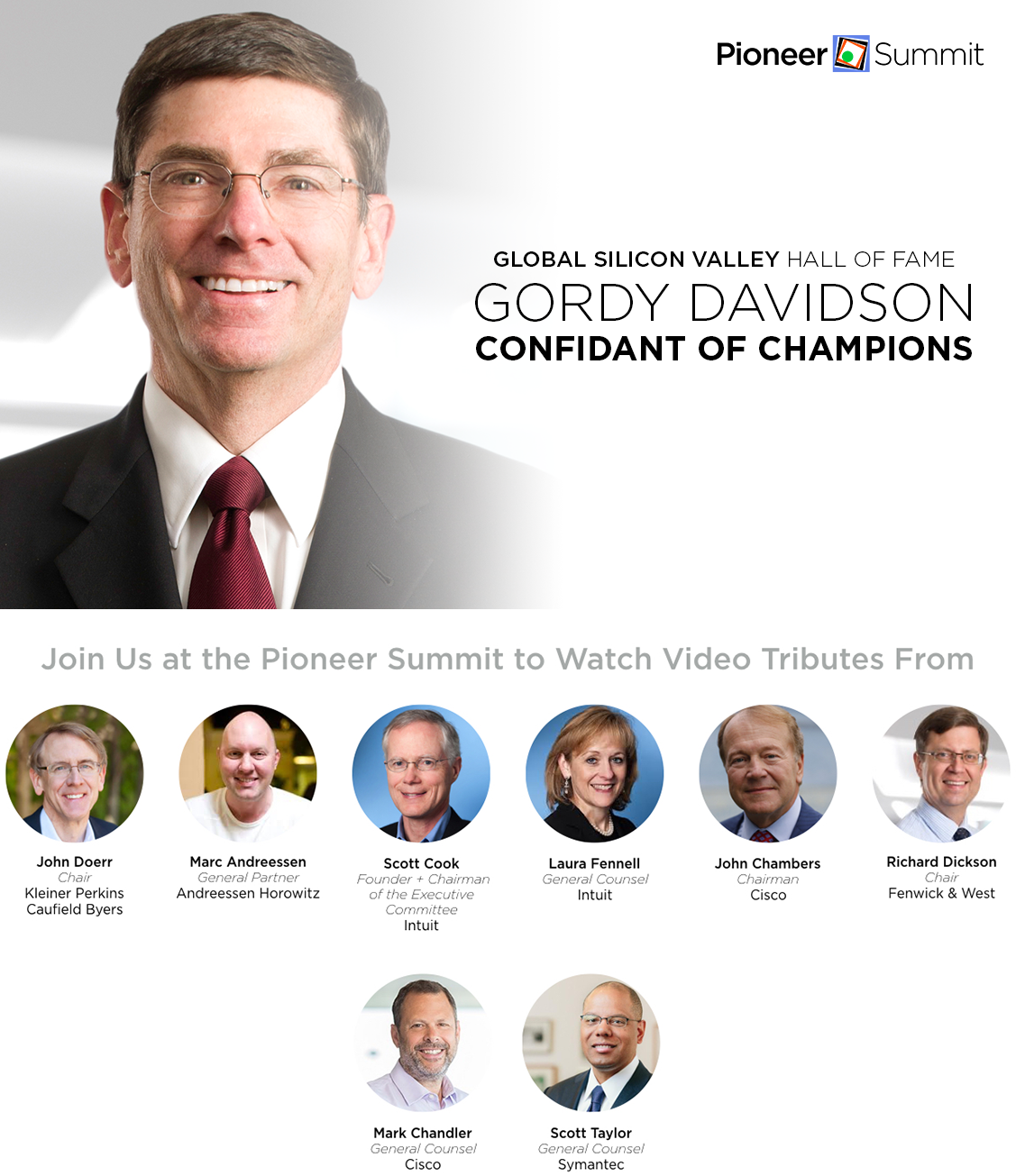
Gordy Davidson is one of the most trusted advisors in Silicon Valley. His client list reads like a history of Silicon Valley: Apple, Cisco Systems, Oracle, Intuit, Electronic Arts, Macromedia, Facebook.
He has worked on over 50 public offerings and has represented boards of directors, audit committees and executives in numerous special investigations. He has also acted as lead counsel on over 100 mergers and acquisitions valued at more than $75 billion in the aggregate, including WhatsApp’s $19 billion sale to Facebook in 2012.
Gordy has spoken on current issues in IPOs at the Securities Regulation Institute and on corporate governance issues at the Stanford Directors College. He has lectured on venture capital investments at the Stanford Law School, the Stanford Business School and the Haas Business School. He has taught courses on deals and mergers & acquisitions at Stanford Law School, and chaired the Practising Law Institute programs on private placements and mergers & acquisitions of high technology companies. Gordy has also served on the boards of directors of non-profit organizations, including BayBio, Children’s Health Council and Pacific Community Ventures.
In Memory: Andy Grove (1936-2016), Legendary Leader
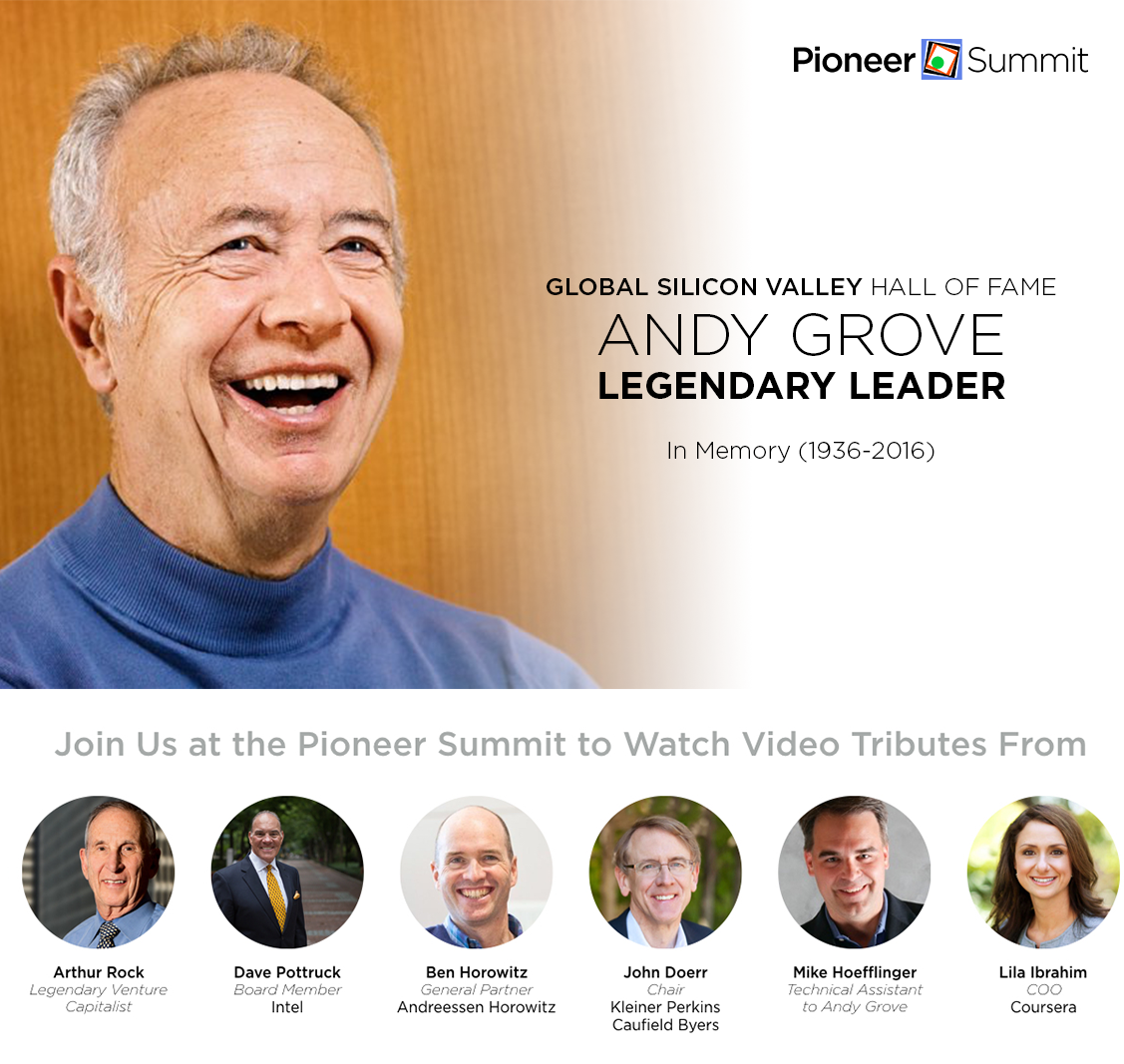
It is hard to describe the profound impact that Andy Grove had on the world, other than to say that Silicon Valley would probably not exist today without Andy’s leadership at Intel, which enabled almost everything built on its computing platform.
Andy, a co-founder and later CEO of Intel, was the visionary behind their shift from memory to processor chips, the slogan “Intel Inside,” and Intel’s dramatic growth. During his time as CEO, Intel’s market capitalization skyrocketed from $4 billion to $197 billion.
Andy overcame tremendous hardship to become the legend that he will always be remembered to be. He was born in Hungary where he survived a Fascist dictatorship, German occupation, the Nazi “Final Solution,” and a repressive communist regime. Andy escaped Hungary when he was 20 and eventually came to America.
He began as a busboy, but eventually earned both a Bachelor’s degree and PhD in chemical engineering from City College of New York and University of California, Berkeley, respectively. After earning his PhD, Andy worked for Fairchild Semiconductors where he met fellow Intel co-founders Robert Noyce and Gordon Moore.
After ending his tenure as CEO on Intel in 1998, Andy continued to be a pivotal figure in The Valley as chairman of Intel’s board until 2004, a lecturer at Stanford University, and through his philanthropy with UCSF, International Rescue Committee, and more. His untimely passing this April sent shockwaves throughout the Valley. He was a legend, a mentor, and a friend to generations of technologists and innovators.
–
Everything seemed to be going well and then previously “dovish” Fed Governor Eric Rosengren remarked that he thought rates should be OK to move up. No sooner than you could say “irrational exuberance,” stocks swooned, having their worst week since Brexit. For the week, the S&P 500 fell 2.4%, the NASDAQ dropped 2.3%, and the GSV 300 fell 0.4%.

Apple came out with its new iPhone last week. Copying the Samsung Galaxy, it is now waterproof. Another feature that will give many juice starved iPhone users cheer is longer-lasting battery. Missing from the new phone is a headphone jack and any real excitement. Apple shares fell over 4% for the week.
In other news, Chipotle received an endorsement of sorts, with activist investor Bill Ackman disclosing that he owned 9.9% of the company’s shares. Ackman said Chipotle was a great brand and undervalued. Tesla received $300 million from Deutsche Bank to help finance the purchase of new cars.
The World is starved for growth and interest rates remain very low, making growth companies especially attractive. We remain BULLISH and look at the Market volatility as a friend of the long term investor.



